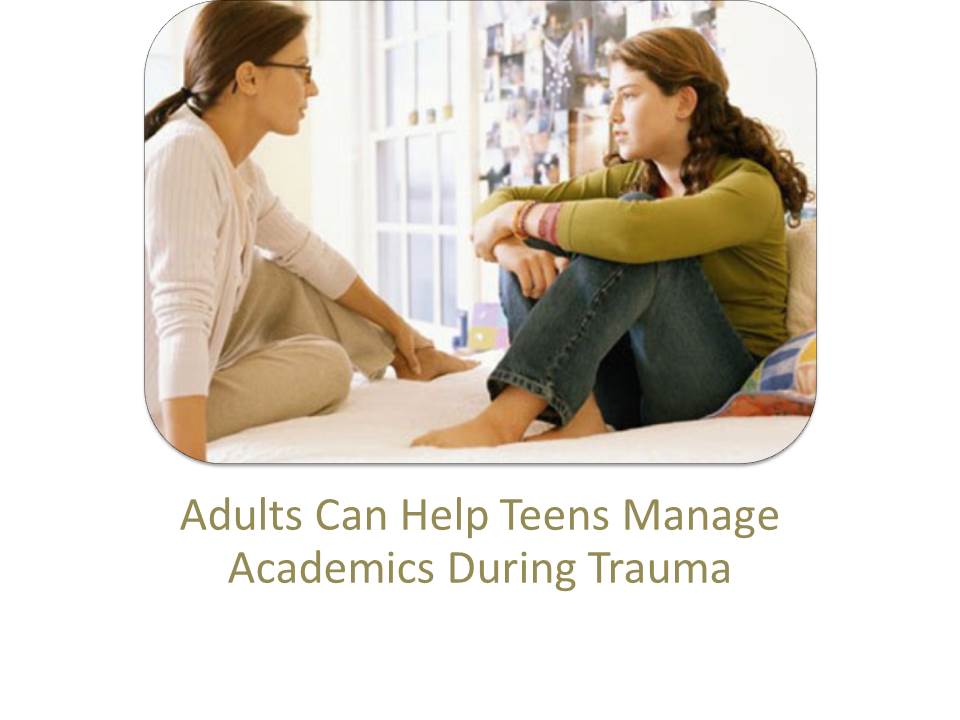Adults Can Help Teens Manage Academics During Trauma

What is a Trauma?
A traumatic event is one that threatens the psychological/physical integrity or the life of a person or of someone critically important to him/her. Here are some examples of traumatic events:
a. Natural disasters
b. The act of terrorism
c. Domestic violence
d. Serious medical illness
e. Accidents
Many teens are feeling the effects of shocking events such as natural disasters, school shootings, and terrorist attacks. Students affected by these events directly or indirectly may be feeling the effects if trauma containing anxiety, difficulty concentrating, isolation, fear, and loss of control and these all could impact their academic performance.
It’s very important for parents and teachers to lay a foundation for students to be prepared to cope with traumatic events from an early age. This can be done by regularly checking in with students, confirming that their experience is valid and ensure they know adults are always there to listen to them.
In addition, teachers and parents can help students to deal with trauma by helping them practice mindfulness, which is a reflective state that allows students to be more aware of themselves and their experience.
Helping teens overcome or avoid sensitive problems in the wake of violence is one of the most vital dares parents can face. Many researchers have exposed that both children and adults who experience terrible actions show a range of reactions.

How you can help as a parent
Early involvement to help teens who have to feel the pain of trauma from a disaster or trauma is serious. Parents can help a child in a great way to deal with trauma and recover from it. After disaster or violence occurs, the family is the main resource to help strengthen a kid's mentality. These are things that parents and other adults can do:
a. Give details the scene of disaster or violence as well as you are able.
b. If a teenager is fearful, reassure them that you care for them and stay with them as much as possible.
c. Spend time with your children to experience and talk about their feelings and help them to return to their routine.
d. Encourage children to be in control and allow them to make some decisions about what to wear, meals etc.
e. Take care of yourself so that you can take care of them.
Teenagers react to a traumatic event in many ways. Reactions to a traumatic event can appear immediately or days and even weeks later. Some youngsters are more susceptible to trauma than others. It’s been revealed that the effects of a traumatic occurrence are possible to be highest in the teen who previously has been the victim of any kind of trauma, or who already suffered from a mental health disease. The child who has less support of family is at more risk for retrieval.
Most children and teenagers will get well almost totally from the apprehension caused by a traumatic event within a few weeks. On the other hand, some children need a longer time to get recover from the fear of traumatic event.
Need Help with Your Assignment?
Get expert guidance from top professionals & submit your work with confidence.
Fast • Reliable • Expert Support
Upload NowOther Assignments